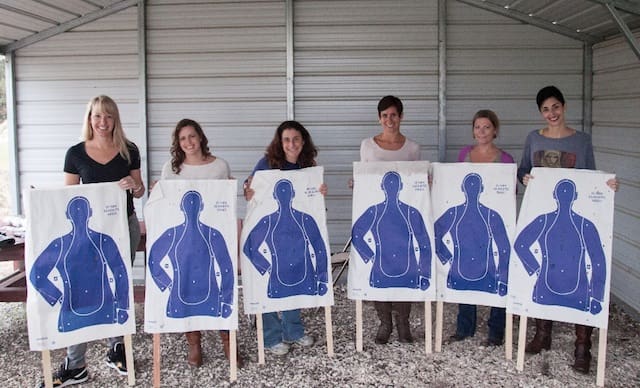
There are many concerns with U.S. Surgeon General Vivek Murthy’s recent declaration that “gun violence” is a public health “crisis.” First among them is that the voting public largely disagrees.
Two thirds of voters, or 66 percent, polled think that criminal misuse of a firearm is a criminal justice issue and not a public health issue. In other words, they see right through Surgeon General Murthy’s election-year announcement that “gun violence” should be treated as a public health matter.
After all, as NSSF has repeatedly pointed out, there is no medical treatment to stop a criminal from misusing a firearm. There’s no inoculation. There is no vector control to stop the spread of the disease of crime. There is, however, a criminal enforcement avenue.
NSSF polled over 2,000 voters from 49 of the 50 states. Seventy-three percent said they were very likely to vote on Nov. 5. They were evenly split. Half were women, and half were men. Thirty-six percent identified as Democrat and 35 percent said they were Republican, with 25 percent identifying as Independent and four percent saying they were unsure or preferred not to say. The poll has a margin of error of +/- 2.2 percent.
Healthy Skepticism
Surgeon General Murthy announced on June 25 a Surgeon General’s Advisory on Firearm Violence, declaring “firearm violence in America to be a public health crisis.” To do this, he re-hashed disproven talking points that firearms are the leading cause of death for children in the United States. He did this by including adults aged 18 and 19. This talking point has been debunked by several media outlets, including The Washington Post and Newsweek. When properly classified to include children through the ages of 17, motor vehicles are still the leading cause of death.
The Surgeon General’s announcement, especially one that’s based on misleading data, isn’t scientific evidence. It’s propaganda. That doesn’t seem to bother Surgeon General Murthy, however, who repeatedly ignores the Centers for Disease Control and Prevention (CDC) data that shows the 1994 Assault Weapon Ban – which also included a ban on standard-capacity magazines – showed no impact on crime reduction.
The polling revealed a healthy skepticism that Surgeon General Murthy is attempting to blur the lines of crime and public health to push a gun control agenda. Nearly half (49 percent) of the voters surveyed said that existing laws should be enforced instead of passing new laws. More than six out of 10 voters surveyed (61 percent) think the CDC should spend its budget studying actual viruses and diseases and should not spend money studying “gun violence.” Less than 40 percent of those voters polled also believe that the definition of “gun violence” should include accidents and lawful self-defense.
Those figures indicate that there’s a concern that public health officials are swerving out of their lane of preventing diseases to hindering Constitutional rights. They’re right to be concerned.
Surgeon General Murthy told the U.S. Senate in his 2021 confirmation hearing that he did “not intend to use my office as surgeon general as a bully pulpit on gun control.” At his second confirmation hearing, he told senators that declaring guns a public health crisis would not be his focus during a new term. Now that the election is closing in, Surgeon General Murthy is changing his diagnosis.
Prescribing Gun Control
Part of Surgeon General Murthy’s public health “emergency” prescription is to ban Modern Sporting Rifles (MSRs), standard-capacity magazines and institute universal background checks, which wouldn’t work unless there is a national firearm registry. That’s forbidden under current federal law. He calls for expanding licensing laws so that citizens must obtain permission to exercise the Constitutional right to keep and bear arms. He wants to restrict where law-abiding citizens can carry firearms, expand Extreme Risk Protection Orders (ERPOs), or “red flag” laws that lack Due Process protections and move the regulation of firearms from the Bureau of Alcohol, Tobacco, Firearms and Explosives to the Consumer Product Safety Commission, where “smart gun” mandates could be required.
That doesn’t comport to what voters surveyed want from the nation’s leading public health official. Sixty-six percent of those polled think the criminals misusing a firearm is a criminal justice issue, not one for doctors in white lab coats.
NSSF’s survey revealed that 68 percent of voters believe that personal protection is the top reason to own a firearm, even though just 36 percent of those voters polled said they own a firearm or live in a household with one. Of those who said they own a gun, over 62 percent believe that existing gun laws should be enforced instead of ginning up new ones, especially by unaccountable medical professionals.
Surgeon General Murthy’s election-year public health “emergency” declaration is clearly undermining the public’s trust in public health care. The voters are giving his declaration a vote of no confidence.
—Salam Fatohi, Courtesy of NSSF
Read full article here

